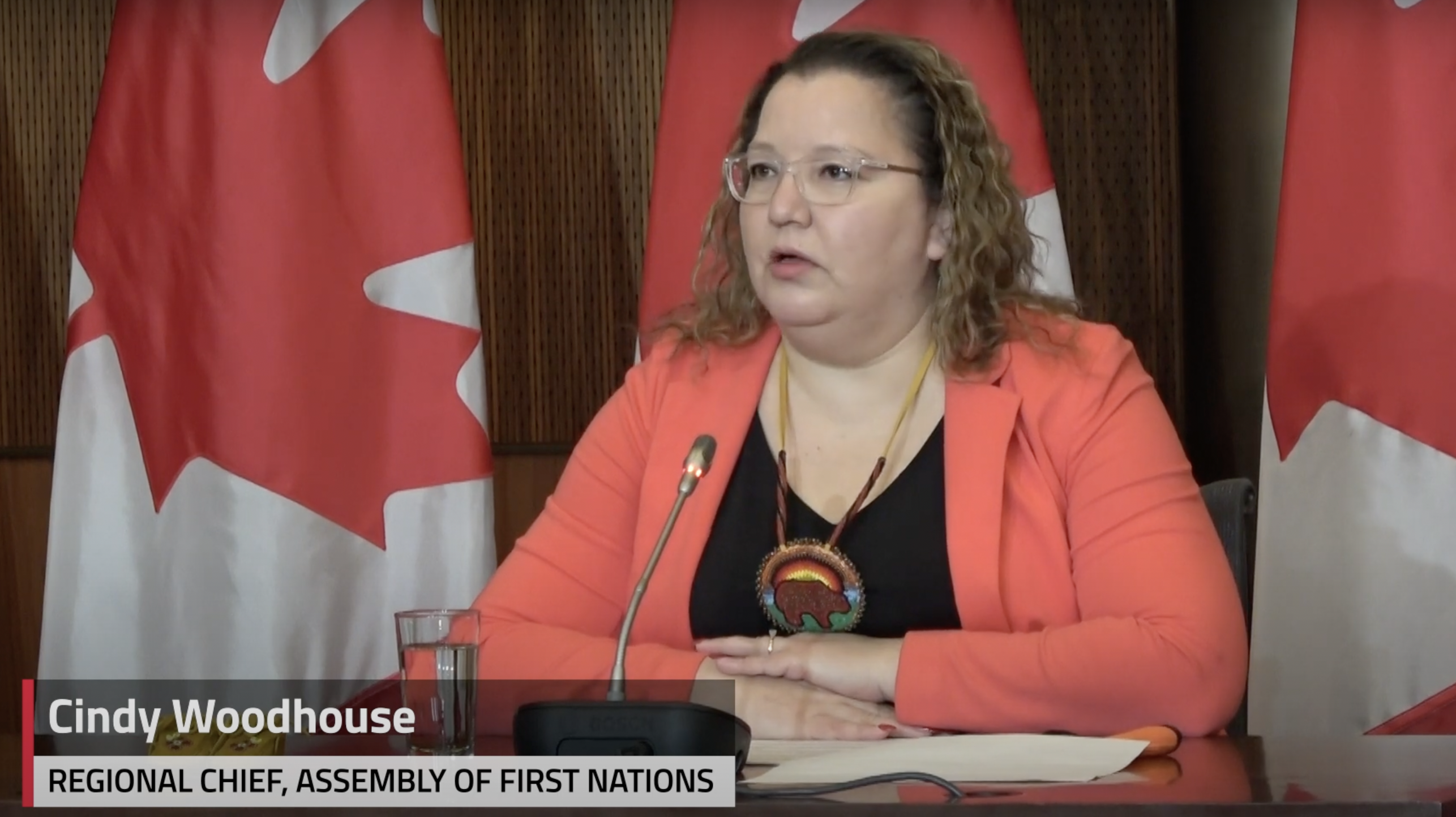
- Details
- By Jenna Kunze
Canada has tentatively agreed to a $40 billion (Canadian dollars, about $31 billion USD) settlement, to right its discriminatory child welfare system that disproportionately separates Indigenous youth from their families over the past three decades, then chronically underfundes the welfare programs meant to serve them.
The non-binding principal settlement, announced on Tuesday and the largest in Canada’s history, will allocate $20 billion in payments to First Nations children who have been unnecessarily removed from their homes April 1, 1991 through March 31, 2022.
The additional $20 billion will go towards reforming the First Nations Child and Family Services program by focusing on prevention. How that actually will play remains unclear.
Assembly of First Nations Regional Chief Cindy Woodhouse called the settlement a long time coming.
Want more Native News? Get the free daily newsletter today.
Nearly 15 years ago, two Indigenous groups—the Assembly of First Nations and the First Nations Child and Family Caring Society—brought forward the original case against the Canadian government. They asked the country’s human rights group to weigh in on whether or not the government had discriminatory practies when it came to the removal of children from First Nation homes, complicated by the fact the government was allocating lesser funds to its federal First Nations Child and Family Services programs.
While less than 8 percent of children under 14 in Canada are Indigenous, they make up more than half of those in foster care, according to 2016 census data. Data also shows that First Nations kids in the welfare system living on First Nations lands get 70 cents on the dollar compared to their non-Indigenous counterparts.
The Canadian Human Rights Tribunal in 2016 ruled in favor of the First Nations groups, but the government repeatedly appealed the decision and failed to comply with the Tribunal’s mandate to cease discriminatory practices and offer compensation to those impacted.
In 2020, AFN wrapped several lawsuits into one when it filed a class action lawsuit against the federal government over treatment of its indigenous children. It’s unclear if the current proposed settlement would include all pending litigation on the matter.
“Every day for decades, First Nations children—some even newborns— have been ripped from their families and cities, and many denied medical services and other supports when they've needed them, all at the hands of a federal child welfare program that should have protected them,” Woodhouse said in a press conference on Tuesday.
According to First Nations lawyer Brad Regehr, president of the Canadian Bar Association, these are not dated issues.
“These are contemporary issues,” Regehr told Native News Online. “This is not from 1921 or 1895. This is now. This is part and parcel of the systemic discrimination that Indigenous people [face] in Canada, and… the situations are very similar in the United States, Australia, and New Zealand.”
One of the key components of the settlement is extended care for Indigenous youth who have aged out of the child welfare system, Regehr said.
“Kids get taken away from their families, they get put into care, and the day they turn 18 they get booted out,” he said. “[They’re] on the street. This has been a massive problem.’
First Nation leaders across Canada are warning that this proposed settlement, while a positive step forward, is not yet legally binding.
According to Regehr, the government and First Nation parties have until March to negotiate a legally binding settlement, which won’t be finalized until sometime next fall.
“These agreements in principle are non binding, and nothing changes in the lives of children today,” said Cindy Blackstock in Tuesday’s press conference. Blackstock is the executive director of the First Nations Child and Family Caring Society of Canada, a nonprofit that has been leading the charge on this issue since 2000. “We need to commit ourselves to keeping watch on the Government of Canada and holding it accountable until it lands some of these things.”
More Stories Like This
Navajo Speaker Curley: The Issue of Missing & Murdered Diné Rooted in ColonizationNew Podcast Highlights Native CDFIs and Small Businesses Driving Economic Transformation in Native Communities
New Analysis of Federal Reserve Survey Sheds Light on Native American Households’ Financial Stress
‘Healing and Justice For Our Families’ | MMIP Event Wraps Wisconsin Capitol in Red
NAFOA Recognizes Indigenous Excellence: Lummi Tribal Council Member and Others Honored at Annual Leadership Awards Ceremony
Native Perspective. Native Voices. Native News.
We launched Native News Online because the mainstream media often overlooks news that is important is Native people. We believe that everyone in Indian Country deserves equal access to news and commentary pertaining to them, their relatives and their communities. That's why the story you’ve just finished was free — and we want to keep it that way, for all readers. We hope you'll consider making a donation to support our efforts so that we can continue publishing more stories that make a difference to Native people, whether they live on or off the reservation. Your donation will help us keep producing quality journalism and elevating Indigenous voices. Any contribution of any amount — big or small — gives us a better, stronger future and allows us to remain a force for change. Donate to Native News Online today and support independent Indigenous-centered journalism. Thank you.

